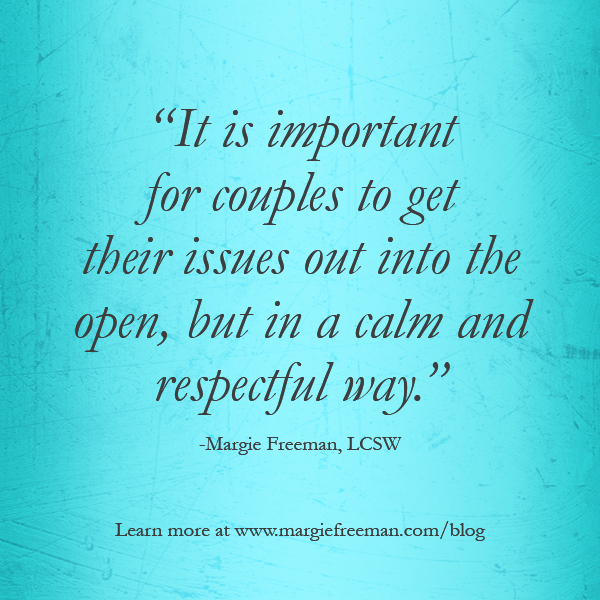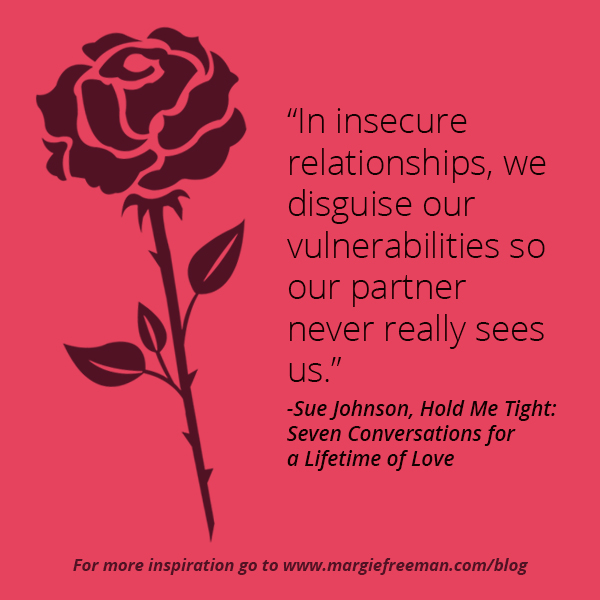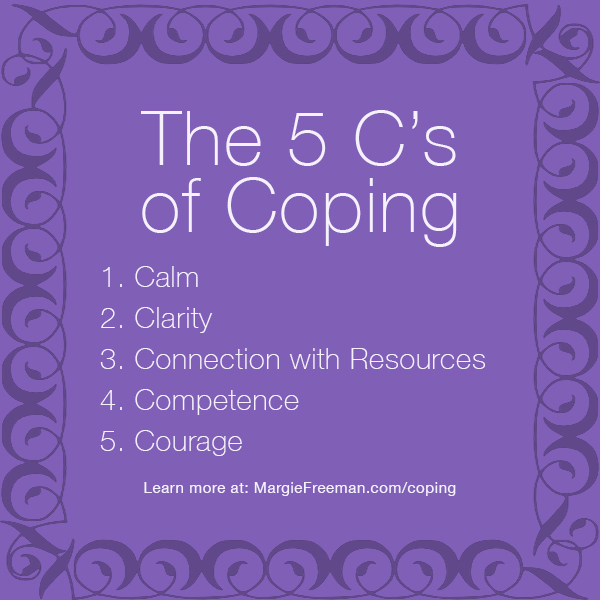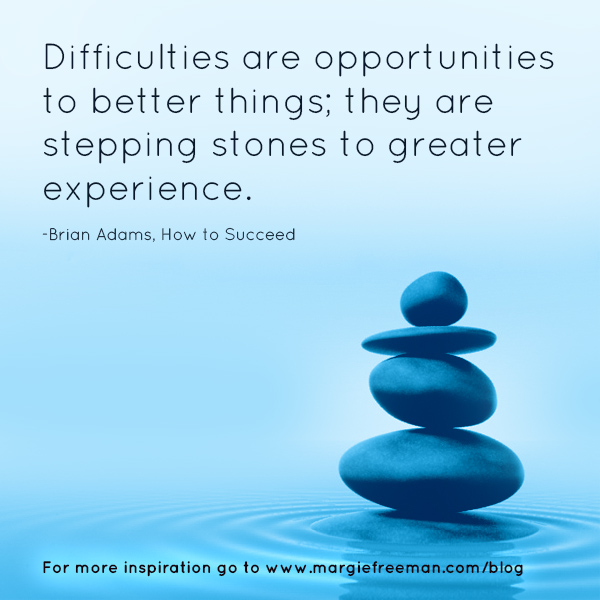
by Margie | Nov 19, 2014 | Marriage, Parenting, Relationships, Self
People often deny their anger at the same time that they hold on to it. Don’t be afraid to recognize that you’re angry. Denying your anger fuels hostility, grudges, and the sense of being a victim. It is important for couples to get their issues out into the open,...
by Margie | Nov 3, 2014 | Uncategorized
“It isn’t what happens to us that causes us to suffer; it’s what we say to ourselves about what happens.” -Pema Chodron

by Margie | Oct 20, 2014 | Marriage, Relationships, Self
Food for thought: “In insecure relationships, we disguise our vulnerabilities so our partner never really sees us.” -Sue Johnson, Hold Me Tight: Seven Conversations for a Lifetime of Love

by Margie | Oct 13, 2014 | Uncategorized
In Linda Graham’s book, Bouncing Back: Rewiring Your Brain for Maximum Resilience and Well-Being, she identifies the 5 C’s of Coping: Calm: We need to learn from our experiences with others in order to calm down our nervous system. Clarity: If we learn how to reflect...

by Margie | Oct 4, 2014 | Self
Difficulties are opportunities to better things; they are stepping stones to greater experience. Perhaps someday you will be thankful for some temporary failure in a particular direction. When one door closes, another always open; as a natural law it has to balance....





